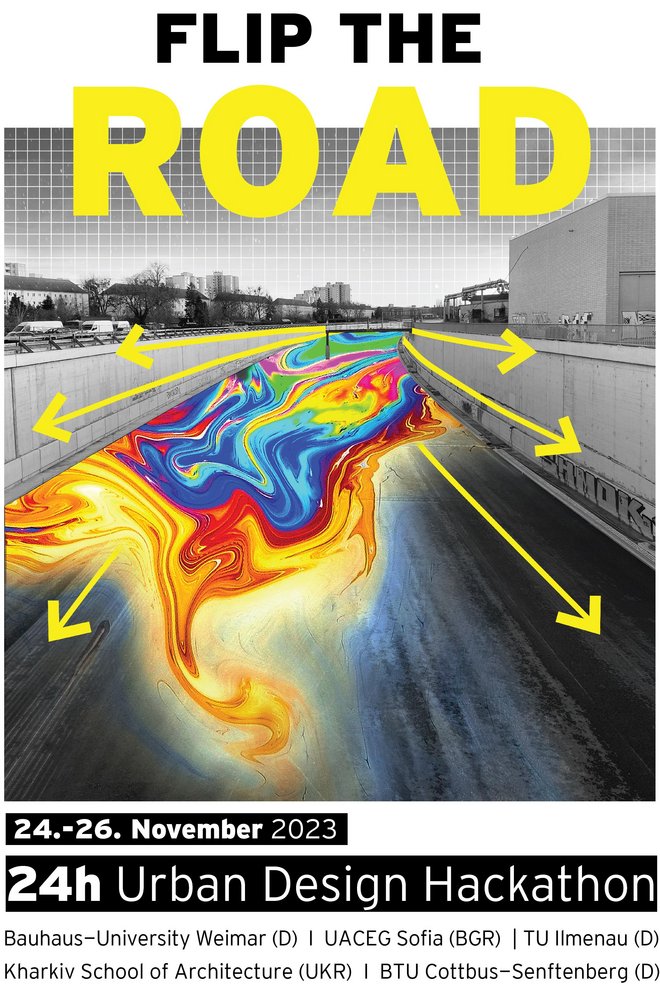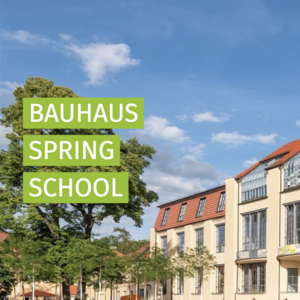The Urban Design Hackathon is back!
In its fourth edition we will stop a disaster in the making, the almost completed building of the A100 Berlin city highway. Once a symbol of modernity, today it represents an outdated policy of favouring car-oriented urban development. Plans for further expansions would demand extensive engineering works, a significant budget and would seriously damage the urban fabric. The outdated planning provides a clear incentive for a surge in the number of cars and an increase in carbon emissions – precisely the opposite of what cities like Paris, Copenhagen or Barcelona are currently doing.
The 16th section of the A100 is finished, but not yet in operation. If the motorway is opened next year as planned, there is a threat of traffic collapse in the Berlin hinterland. But it is never too late to do the right thing: bury the old plan and think again! The colossal valley-like infrastructure is a unique chance to turn the tide and to develop a thousand new ideas – literally anything is better than a new motorway.
The question for this year’s Hackathon is: how do you turn the car traffic ruin, a symbol of past time planning, into a catalyst for sustainable urban development?
To apply please send us your portfolio to urbandesignhackathon[at]uni-weimar.de by 20.10.23.
The Urban Design Hackathon is a 24h online workshop for international students from European architecture schools.
Over its past three editions, we tested and successfully established a new format of digital teaching and international collaboration - despite the pandemic and without environmentally harmful air miles. Supported by technically advanced tools, the virtual room became a common ground for learning and intercultural exchange for students and academics from ten institutions across Europe.
We invite students to develop future scenarios for obsolete structures in the urban environment. It is a novel approach, where the ugly and outdated buildings are not simply erased but valued for their grey energy and embraced as catalysts of a resilient and sustainable further development of our cities.
The object of the first Hackathon was the soon-to-be-closed Karstadt department store building in the lively district of Wedding, Berlin. In the second edition, students were asked to propose an urban transformation for Charité’s former animal testing laboratory, also known as “Mäusebunker.” Closing the Berlin trilogy, our third dinosaur was the parking garage of the now at a standstill world-famous International Congress Center - ICC Berlin.
The Urban Design Hackathon is an ongoing experimental project: as the zeitgeist changes, so does the format. After two years of online teaching, on its third edition, the Hackathon went hybrid, testing the contrast of a successive form, an online phase followed by a presential workshop in March 2022.
Reanimate ICC Berlin - Car Park





